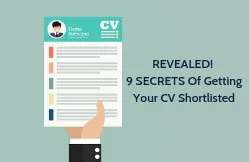Life After Education. Dreams VS Reality
Don’t get panic relax! Just now you have completed your education & thinking to start your career. It is time to get organized, get focused and get busy.
A recent survey reveals a lack of professionalism and appropriate etiquette will cause a number of opportunities to lose.
Job Searching Phases
1. Get some career advice
2. Get some professional training Ex: Software Testing , Web Designing
(Depends on your interest & education background)
3. Study soft skills or get training on soft skills (Finishing School)
4. Prepare your CV
5. Apply for jobs
6. Attend Interviews
*So you got a job, Excellent!
1. Get Some Career Advice
If you are not sure what are the career options available seek career guidance from an experienced career advisor.
Search for career options available in your technical area. Check out the salary offered for different jobs
Don’t think like "One of my senior/friend has done Java course & got a job, so let me take Java training & find a job"
Never do this kind of mistakes, your friend might have good Java skills & he has very good programming/coding skills, & his skills attracted an excellent job for him. Before you take any training think if you are really interested in that training. We have seen many people doing this II!
Know your strengths & weakness; decide which job will give you happiness in your life. Don’t do a job which will not suit your life style.
Ex: A customer support job requires you to speak to customer & provide him a solution, don’t choose this job If you don’t speak more when you are with friends/family or if you don’t like talking much,
2. Study Soft Skills Or Get Training On Soft Skills
This is most important when you are searching for a job & even when you start your professional career life.
WHAT ARE THE 'SOFT SKILLS' EMPLOYERS LOOKING FOR?
- Communication skills
- Making decisions
- Showing commitment
- Flexibility
- Time management
- Creativity and problem-solving skills
- Being a team player
- Accepting responsibility
- Ability to work under pressure
Employers want to select, retain and promote Individuals who are dependable, resourceful ethical and good communicators who are willing to work.
Soft Skills help to increase employability.
Soft Skills are important for fine tuning the student's attitude to learning,motives,values.. and deal with different situations responsibly & diligently.
Prepare Your Resume A RECENT SURVEY SHOWS: 70 % of the job seekers fail in preparing a good CV See our" How to write a Perfect CV”
3. Apply For Jobs:
80 % of the fresh graduate job seekers don’t know how to write an email to a job advertisement See our" How to write a perfect Email" Some worst examples when writing an email to a job advertisement. No Subject line No Greetings or signatures No Email Body (Just attaching a CV)
Worst Email Subject Lines
- My CV
- Sandeep CV
- CV Attached
- Resume
- Applying for Job
4. Attend Interviews
Before Interview: Understand the Job role & responsibilities of the job position you have applied,
Go through the employer website & understand what they are in to & any recent achievements of the employer,
Think about how well your experience, interests and skills fit the job and the organization.
Plan the day of the interview, especially your journey with an aim to arrive ten minutes early.
Decide what you will wear and set it out the night before.
Suits and business wear are the best options with comfortable, polished shoes.
Take a print out of at least 2 copies of your CV & any appointment letter if required.
Prepare for most commonly asked interview questions
Give yourself time to think about what unique qualities you will bring to the job position or organization.
A pen and notebook are always worth carrying with you.
On the interview Day: Arrive at least 15 Min before scheduled interview time
Greet the Interviewer: Good Morning, Good Afternoon, Good Evening
Listen carefully to questions and answer them concisely.
Highlight your strengths & job related skills in the interview.
Before you go, think about what you want the interviewer to know about you (in relation to the job) during the interviewing process
Pay attention to the way you communicate. There's evidence to suggest that non-verbal communication overpowers verbal communication
Use positive language, as Interviewers will be assessing your motivation and enthusiasm;
Preparing For A Telephonic Interviews
PHONE INTERVIEWS ARE QUITE COMMON & USED AS A PRELIMINARY SCREEN. When preparing for the interview it's important to consider: Greet the interviewer Good Morning, Good Afternoon ,Good Evening.
If you are using your mobile, charge it fully before the interview.
Ensure you are enthusiastic and use positive language.
Find a very quiet place for the interview, where you will not be disturbed by noise or others.
Very few people get the first job they apply for, or are interviewed for. The key thing is to learn from those experiences.
If you've been unsuccessful in an interview, don't be afraid to ask for feedback - it’s the best way to learn and you can then put what you're told into practice."
RECENT RESEARCH BY TOTAL JOBS.COM FOUND THAT SOME 24 PER CENT OF GRADUATE JOBSEEKERS HAVE BEEN LOOKING FOR WORK FOR MORE THAN 12 MONTHS - COMPETITION IS FIERCE
Most Popular Courses
SEO Course || Data Analystics || HR Course || Digital Marketing || Python programming







